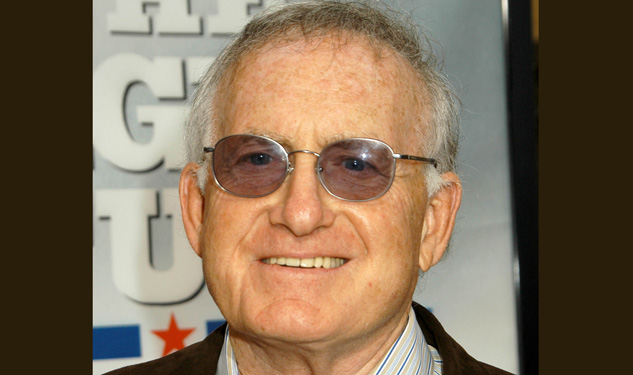
- Industry
Robert Chartoff, Trailblazing Producer
Robert Chartoff, who died at age 81, was a successful and resourceful independent producer, whose movies reflected the zeitgeist of America at the end of the twentieth century. He is best known perhaps for producing Rocky [1976], which garnered Chartoff and his long-time producing partner, Irwin Winkler, six Golden Globes nominations and one win, for best movie-drama, as well as three Oscars. Chartoff was born in New York on Aug. 26, 1933, and grew up in the Bronx. While attending Union College in Schenectady, N.Y., and before heading off to Columbia Law School, he worked summers for an uncle who booked talent into hotels in the Catskill Mountains. This was his introduction to show business. After graduating Columbia, the young lawyer never practiced. His heart was in show business. He began a career as a personal manager and formed a talent agency with Brooklyn native Winkler. Together they graduated from booking talent to producing
the movies. During their decades long collaboration, the partners produced more than two dozen features, and won a dozen Oscars. Chartoff and Winkler also produced another classic boxing film, Martin Scorsese’s Raging Bull [1980] which also won them a Golden Globe nomination. Their other productions include the popular pulp noir Point Blank [1967], the Depression-era They Shoot Horses, Don’t They? (1969) [Golden Globe nomination], the taut drama The Mechanic (1972], the crime drama True Confessions (1981) and the U.S. space program saga The Right Stuff (1983) [their last Golden Globe nomination]. Their movies, wrote the Hollywood Reporter … “were distinguished by an understanding of characters who are willing to take risks or who find themselves in tough spots”. But Chartoff’s name will always be associated with Rocky, the winner of the Golden Globe for best movie/drama. Chartoff and his partner Winkler met with a then-unknown actor Sylvester Stallone, who was trying to get a movie he wrote about an unknown but determined Philadelphia boxing club underdog named Rocky Balboa, who rises from obscurity to fight for the heavyweight championship of the world. Interviewed for a 2004 book about producers, Chartoff said: “What I liked most was the ending: Rocky Balboa lost the fight to rival Apollo Creed. However, something more important happened. He won by achieving his personal goal. That was very rare in American cinema.” Producing Stallone’s dream was a Rocky-like story in itself: Mike Medavoy at United Artists, was an early supporter, convincing the studio’s brass to make the unknown beginner’s film. The budget was a modest: $960,000 — because Stallone refused to sell the script unless he played the lead. On the other hand, with no big-name, expensive star attached, the studio could save a bundle. (UA had actually offered to pay the broke Stallone $265,000 if he would agree to let Ryan O’Neal or Burt Reynolds star in his movie, but like his Rocky, Stallone wouldn’t budge.) They shot the film in an indie-like 28 days. When the studio wanted a different ending but would not pay for the re-shoot, they had to dig into their own bank accounts for the $25,000 it cost. With great faith in their little movie that could, they were able to persuade UA to release Rocky in New York on Nov. 21, 1976, so it would make the deadline for that year’s Academy Award consideration. But the first critical reaction was dismissive: Chartoff told an interviewer: “We were standing outside a theater on Second Avenue, reading The New York Times review, by Vincent Canby, who wrote: … a ‘sentimental little slum movie … an unconvincing actor imitating a lug. Be warned.’ “Our old friend Peter Falk came up to us and we said, ‘Peter, look at this review. It’s awful. It’s going to kill the movie.’ And Peter said, ‘Do me a favor — go inside the theater. The audience is standing and cheering.’” Soon came awards season, and it all paid off handsomely: Rocky gathered six Golden Globes nominations [Chartoff for best movie/drama, Stallone for best actor-drama and best screenplay, his co-star, the little known Talia Shire for best actress-drama, John G. Avildsen for directing and Bill Conti for best score. The Golden Globes sweep was followed by ten Oscar nominations (including two for Stallone, again for best actor and screenplay. Only Charlie Chaplin and Orson Welles achieved such an Oscar feat before Stallone). Rocky won for best picture, repeating its capturing the Golden Globes. The million-dollar production raked in, according to Chartoff, more than $200 million [by 2004]. Chartoff and Winkler went on to produce the next four Rocky films through 1990 and were also credited as executive-producers credit on 2006’s Rocky Balboa. Chartoff was a producer on the 2013 sci-fi film Ender’s Game. Closing the circle, Chartoff is listed as a producer on two films yet to be released, both connected to the actor he helped launch almost 40 years ago and to the Rocky franchise: Scarpa, starring Stallone, a drama about a hitman, and the Rocky-inspired Creed, features Michael B. Jordan as the grandson of Rocky’s adversary in the 1976 original.
Yoram Kahana

